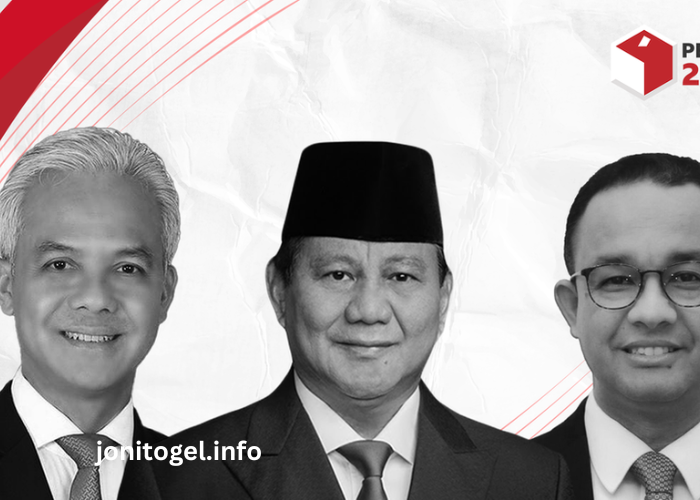The anticipation surrounding Indonesia’s presidential elections of 2024 is palpable, as the nation gears up for yet another pivotal moment in its democratic journey. With the incumbent’s term coming to a close, the spotlight shifts to the candidates vying for the esteemed positions of Calon Presiden dan Wakil Presiden (Candidate for President and Vice President). In this comprehensive analysis, we delve into the intricacies of Indonesia’s political landscape, exploring the key players, issues, and dynamics shaping the upcoming election.
Historical Context
To understand the significance of the 2024 presidential elections, it’s imperative to grasp Indonesia’s political evolution. From the era of authoritarian rule to its transition to democracy in 1998, the nation has navigated through various socio-political challenges. These historical underpinnings serve as the backdrop against which the contemporary political narrative unfolds.
Election System and Process
Indonesia employs a unique electoral system characterized by a combination of direct and indirect voting mechanisms. The President and Vice President are elected through a direct popular vote, with candidates required to secure a majority to win. Concurrently, legislative elections are held to elect members of the People’s Consultative Assembly (MPR) and the People’s Representative Council (DPR), which play pivotal roles in the political landscape.
Emerging Candidates
A plethora of candidates from diverse backgrounds has thrown their hats into the ring for the 2024 elections. From seasoned politicians to fresh faces, each contender brings a unique set of ideologies, visions, and promises to the forefront. The emergence of new candidates reflects the evolving aspirations and expectations of the Indonesian electorate.
Incumbent’s Legacy
The outgoing administration’s performance and legacy inevitably influence the electoral dynamics. Evaluating the incumbent’s achievements, shortcomings, and policy initiatives provides valuable insights into voter sentiment and preferences. The assessment of incumbent performance often serves as a litmus test for the electorate’s decision-making process.
Socio-economic Landscape
Indonesia’s socio-economic landscape is marked by a myriad of challenges, including inequality, unemployment, and infrastructure deficits. The candidates’ ability to articulate viable solutions to these pressing issues resonates deeply with voters across demographic segments. Economic policies, social welfare programs, and employment generation strategies often take center stage in election campaigns.
Political Alliances and Coalitions
In the realm of Indonesian politics, alliances and coalitions play a pivotal role in shaping electoral outcomes. Parties and candidates strategically forge alliances to consolidate support bases, leverage resources, and enhance electoral prospects. The intricate web of political affiliations and maneuvering adds layers of complexity to the electoral landscape.
Regional Dynamics
Indonesia’s vast and diverse archipelago encompasses a multitude of regional identities, interests, and aspirations. Regional dynamics exert a significant influence on electoral outcomes, as candidates tailor their campaigns to resonate with specific regional sentiments and concerns. Understanding the nuances of regional politics is essential for deciphering electoral trends.
Youth Engagement and Participation
The youth demographic constitutes a formidable force in Indonesian politics, with its growing presence and influence. Candidates recognize the importance of engaging with young voters, who are increasingly vocal and politically conscious. Issues such as education, employment opportunities, and youth empowerment feature prominently in electoral discourse.
Women in Politics
The inclusion and representation of women in politics remain a critical issue in Indonesia’s democratic landscape. Despite progress, gender disparities persist in political participation and leadership roles. Efforts to promote women’s empowerment and gender equality are integral to fostering a more inclusive and representative democracy.
Media and Information Warfare
In the digital age, the media landscape has undergone a profound transformation, reshaping the dynamics of political communication and information dissemination. Social media platforms serve as battlegrounds for competing narratives, propaganda, and disinformation campaigns. Navigating the murky waters of information warfare is a formidable challenge for both candidates and voters.
Electoral Integrity and Transparency
Ensuring the integrity and transparency of the electoral process is paramount for upholding the credibility and legitimacy of democratic elections. Electoral reforms, institutional safeguards, and oversight mechanisms are essential for mitigating risks of fraud, manipulation, and irregularities. Upholding the rule of law and fostering a culture of accountability are imperative for safeguarding electoral integrity.
Role of Civil Society and Activism
Civil society organizations and grassroots movements play a crucial role in promoting civic engagement, advocacy, and accountability. From election monitoring to voter education initiatives, civil society actors contribute to enhancing the transparency and fairness of the electoral process. Their efforts bolster democratic governance and citizen participation.
International Perspectives and Relations
The outcome of Indonesia’s presidential elections resonates beyond its borders, shaping regional dynamics and international relations. The international community closely monitors the electoral process, emphasizing the importance of free and fair elections in upholding democratic principles. Strong diplomatic ties and cooperation with foreign partners remain integral to Indonesia’s global standing.
Challenges and Opportunities
The road to the 2024 presidential elections is fraught with challenges, ranging from socio-economic disparities to political polarization and external pressures. However, amidst these challenges lie opportunities for meaningful reform, consensus-building, and nation-building. The resilience and vibrancy of Indonesia’s democracy are exemplified by its ability to overcome obstacles and forge ahead.
Conclusion
As Indonesia stands on the brink of another pivotal electoral moment, the stakes are high, and the possibilities are endless. The 2024 presidential elections hold the promise of shaping the nation’s trajectory for years to come, with profound implications for its democratic consolidation and socio-economic development. With the electorate poised to make its voice heard, the journey towards a brighter future for Indonesia continues.






